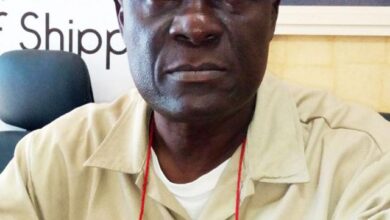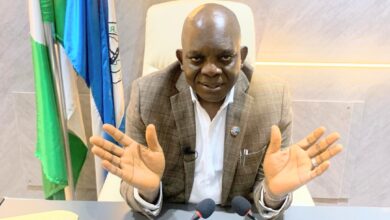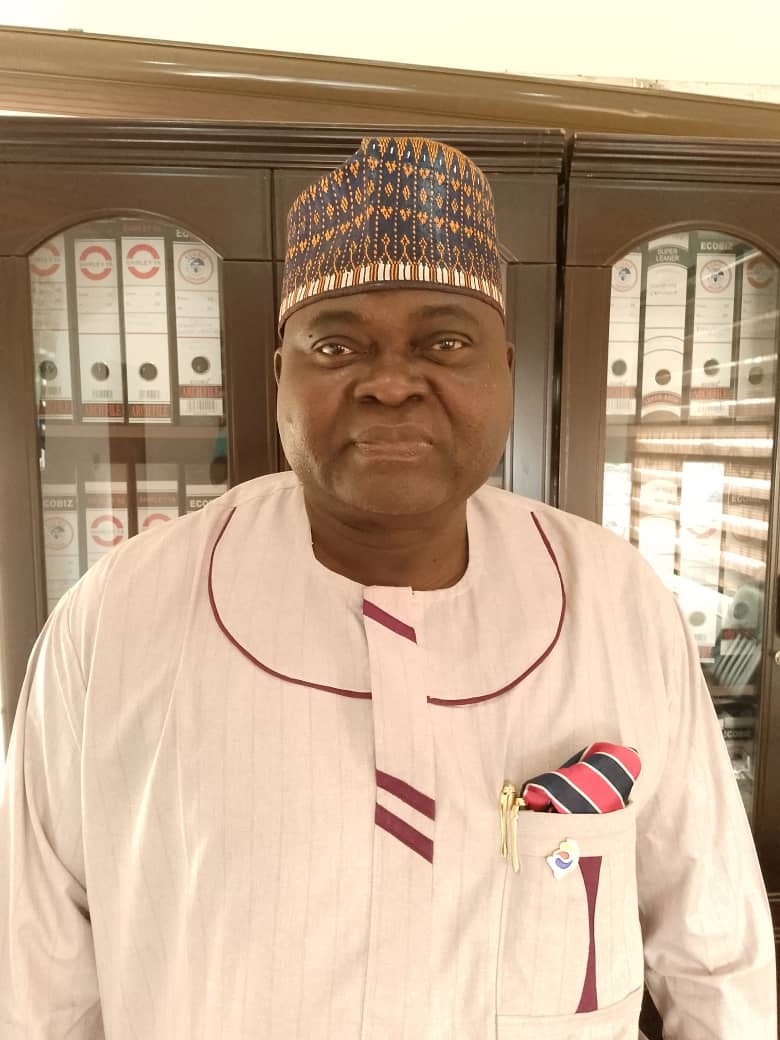
Rotimi Raimi-Hassan, General Manager, Kaduna Inland Dry Port(KIDP) gives an insight into operations of Nigeria’s first dry port that evolved from being a bonded terminal licensed by Nigeria Customs Service.
He explained to Ismail Aniemu in an exclusive interview that the port has been promoting import and export trade since it’s formal commissioning by former President Muhammadu Buhari on January 4, 2018
According to the GM, KIDP is managed and operated by professionals with vast experiences in various aspects of maritime and logistics that have demonstrated a knack to bring port activities closer to the hinterland in line with the vision of its parent company, Inland Containers Nigeria Limited (ICNL)
Excerpts
Q: Tell us how the KIDP fared in 2023 in the areas of import and export compared with 2022.
Kaduna inland dry port is not doing badly despite various challenges experienced in 2023. We are the market leader in dry port business in West Africa. We have an incontrovertible position as the best in Nigeria because of our rich history from ICNL, our parent company with experienced and dedicated staff who give customers top quality service of moving containers from seaports in Lagos and Onne to Kaduna State.
Let me start by saying that we have a mandate to bring maritime or port activities and benefits to the hinterland area where they don’t have access to the sea and we have never lost focus on this mandate.
Our strategic location with our profile of competence puts us at a vantage position to serve the business communities in Kaduna, Abuja and other proximate States. We are critical participants in the chambers of trade and commerce in Kaduna and Lagos.
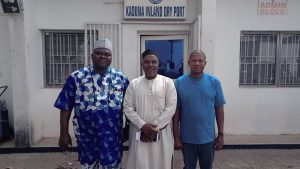
Recall that in 2020 , the Abuja Chamber of commerce described us as the only functional dry port in Nigeria. Although other dry ports are coming up in other parts of the country, which for us, is good for competition, but we are not relenting in regularly improving out service delivery.
From our vast understanding of seaport port operations, expertise in the logistics of cargo movement by road or rail and our seamless processing of shipment in our Kaduna Inland Dry Port’s facility, we have always prioritised customer satisfaction and adhered to meet government rules and regulatory requirements in all that we do.
We are also making conscious efforts to continually give exporters real value for their business and supporting federal government initiative for economic diversification through non oil export.
Kaduna Inland Dry Port is the most prepared dry port for the operation of domestic export warehouse (DEW) initiative by the Nigerian Export Promotion Council (NEPC).
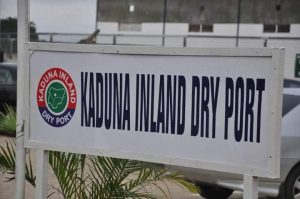
Since former President Muhamnadu Buhari commissioned our port in January 2018 , as the first of its kind in West Africa, we have always worked relentlessly to add value to the nation’s economy and kept our promise of excellent service delivery
Our organisation has a group of professionals who deliver world class services locally for importers and exporters and we are not lowering our standards for any reason despite the challenges in our operating environment
Let me explain a bit of the challenges we face in the course of our operations. We all know last year was an election year and that comes with some setbacks to trade especially for those of us in thr logistics business
Last year,importation dropped by forty (40%) percent in the last quarter, 2023 and 2022, preparation by political parties to field their candidates into various positions for electorate to cast vote.
However, major challenges we encountered were increase in exchange rate for payment of customs duty, high and unstable foreign exchange and difficulty to access it by importers which affected trade.
Other challenges are the lack of rail for haulage services, increase in diesel price that resulted in high transportation cost and others. This increase in petroleum products price following removal of subsody also raised our cost of doing business
Because of vandalizing of rail lines and rate of banditry and terrorism along Jebba to Kaduna on Lagos – Kaduna – Kano axis, export forwarding has been affected for export activities to pick up at Kaduna inland dry port. This made exporters not to enjoy cheaper export haulage by rail to Apapa and other ports
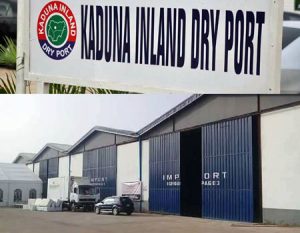
Q:Give us an overview of how customs procedures affect your receiving cargoes from Lagos and Rivers Ports to Kaduna inland dry port?
Customs modernization system has improved the customs documentation process, but there is need for customs authority to create mode of operations for inland dry ports in Nigeria and make the customs documentation process seamless.
The inland dry port was established to decongest seaport and provide shipping activities more easier for hinterland shippers by providing same facility or platform at seaport to those in the hinterland.
It is also to facilitate international trade without any barriers. The operators on inland dry port operate on status of bonded warehouse terminal operations. This has made the dry port less attractive to hinterland shippers for patronage.
The best international standard is for stakeholders to fine tune the procedural process of how cargoes destined to Inland dry ports get treated preferentially. What I am saying in essence is that manifest concerning dry ports should be forwarder to customs to key into the NCS server before the arrival of the vessel while the customs officials at Lagos Onne Customs Area Command give express approval and direct Enforcement to do needful of providing escort for transit surveillance to Kaduna inland dry port terminal.
There at Inland dry port, the resident customs receive and tally the landing certificate for normal processes as obtained at the seaport
Q:It was widely believed that rail is cheaper for cargo haulage than road. How much have you benefitted from the Nigerian Railway Corporation?
The Nigeria Railway Corporation promised last year (November) that they would commences cargo rail transportation . We are still looking forward to this. . For any inland dry port to operate effectively and efficiently it needs support of a quality rail system, sound locomotive with enough carriage wagons to move the containers enmass at a given time.
The best and most cost effective mode of transportation of containers is by rail , which is far cheaper compared to road haulage that is very high in cost and the safety is not guaranteed like rail haulage.
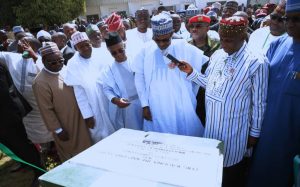
Imagine, hundreds of laden containers are moved on daily basis from Durban seaport to Johannesburg railway station where there are many terminals linked with rail lines connected, for dispatching and loading of import/export goods.
We hope Nigerian Railway Corporation are working towards this direction, with my recent meeting with Director of Operations he has promised us that we should expect containers – rail haulage movement by early March, this year 2024.
We hope this will go a long way to reduce pressure on our road and compliments it by reducing the high cost on transportation on import and export of goods to hinterland and to seaport terminals respectively.
Q:Could you set a dry port area of priority agenda for the new ES of Nigerian Shippers Council and the Minister of Marine and Blue Economy?
The Nigeria shippers’ council has been supportive to the yearning of inland dry ports, they have been there with federal ministry of Marine and Blue Economy since inception of Kaduna inland dry port.
But the priority areas demands are the political backing to support inland dry ports in Nigeria to operates on the status of a dry port as it’s being operated in other countries like South Africa, Kenya, USA. Operations of inland dry ports should be made seamless for hinterland shippers for them to derive more on shipping business.
Q: What are the things you think the federal government should do to improve productivity and viability of dry ports in Nigeria?
The federal government should create an enabling working environment with the major stakeholders to enhance the productivity and viability of inland dry ports in Nigeria. And these are workable by calling to order of three major stakeholders, Customs; shipping companies and Nigerian Railway Corporation (NRC) to create effective and efficient working modalities for inland dry ports in Nigeria to operate like others works in foreign countries.
It has to work to create employment and enhance revenue to both state and federal governments. There is no where a port is sited that does not industrialise the state and that region.
The shipping business are concentrated majorly in Lagos and Port Harcourt, It should be decentralized to enable all located inland dry ports in Kaduna, Kano, Funtua and others to thrive and stimulate economic activities in the various regions where inland dry ports are sited. This is the only way federal government objective of decongesting Lagos seaport would work.
Q:Tell us about KIDP relationship with the Kaduna State Government.
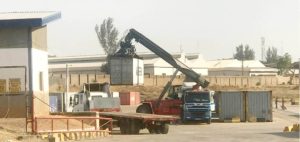
Kaduna inland dry port has been enjoying full support from Kaduna state government since its inception, the supervisory ministry, Kaduna state ministry of Business Innovation and Technology formed committees that discussed on export with various stakeholders in the state and other parastatal of the government like KASUDA, Kaduna Market Development Company, Kaduna state Investment Promotions Authority, KASTELIA etc.
The stare cooperate and provide support to improve the services of Kaduna inland dry port to port users.
Q: How has KIDP as the first approved dry port in Nigeria influenced the future and prospects of the dry port operations in the country?
Kaduna inland dry port limited is the first dry port operator in Nigeria, a port of Origin and port of Destination. It was established and gazette in 26th May 2015 and commissioned in January 4th 2018 by former President, Muhammadu Buhari GCFR.
We charted the course and pioneered the journey for other dry ports to come up. Despite being the first and the best in Nigeria, we are happy that the government has gone ahead to promote establishment of other dry ports in Kano, Katsina, Oyo and othet states.
Our little success motivated government into doing more. We have influenced the dry port business in Nigeria by leading the way for others to follow.








